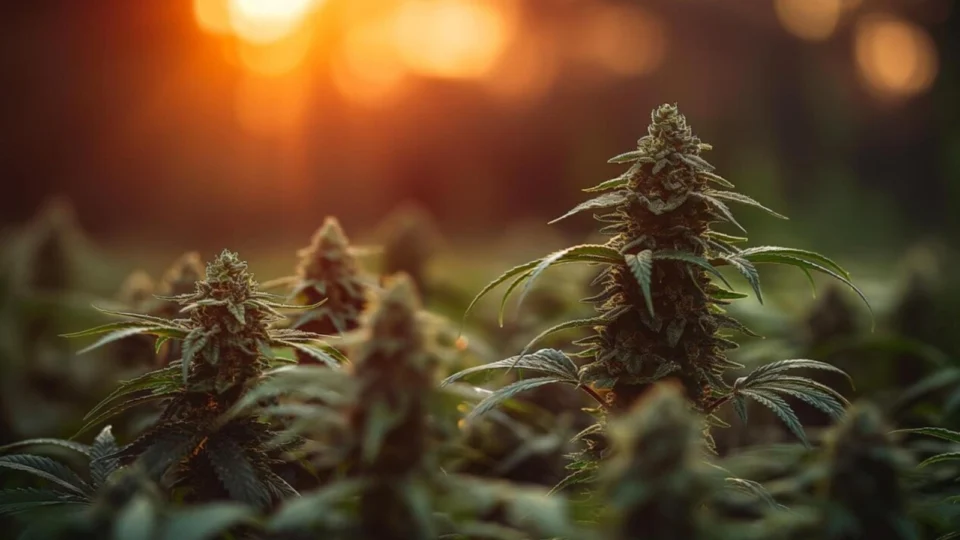In recent decades, its use has become increasingly prevalent, especially among young adults, with changing legal frameworks and social perceptions across the globe. As cannabis consumption rises, so does the need to better understand its effects on human health.
A recent study published in JAMA Network Open has contributed significantly to this understanding, investigating the effects of both recent and lifetime cannabis use on brain function, particularly focusing on cognitive tasks involving working memory.
The study, which is considered the largest of its kind, aimed to investigate the impact of cannabis use on brain function using brain imaging technology. Over 1,000 young adults aged 22 to 36 were included in the study. The researchers, led by Dr. Joshua Gowin, an assistant professor of radiology at the University of Colorado School of Medicine, used advanced techniques to examine how cannabis affects brain activity during cognitive tasks. These tasks involved working memory, emotion processing, language, motor skills, and others.
The results were compelling. The study found that 63% of heavy lifetime cannabis users (those who had used cannabis more than 1,000 times in their lifetime) exhibited reduced brain activity during a working memory task. Interestingly, a similar effect was seen in 68% of recent cannabis users (those who had used cannabis within the past 30 days). The decline in brain activity observed was linked to poorer performance on working memory tasks. Working memory, a key cognitive function, allows individuals to retain and manipulate information, such as following instructions or solving a complex problem. This cognitive skill is crucial for daily functioning, and any impairment could potentially lead to challenges in academic, professional, and social settings.
Table of Contents
The Role of Brain Activity
The research specifically focused on how cannabis use influenced brain activity in areas related to working memory. Magnetic resonance imaging (MRI) scans revealed that heavy cannabis users showed a reduction in brain activity in specific regions, including the dorsolateral prefrontal cortex, dorsomedial prefrontal cortex, and anterior insula. These areas of the brain are involved in decision-making, memory, attention, and emotional processing. The dorsolateral prefrontal cortex, for example, is critical for planning, reasoning, and controlling impulses, while the anterior insula plays a role in processing emotions and integrating sensory information.
What is particularly striking about the study is that these effects were observed even in recent cannabis users, not just those with a long history of cannabis use. This highlights the potential short-term impacts of cannabis consumption on cognitive function, particularly in tasks that require working memory. While the study found that cannabis use had a statistically significant effect on brain function during working memory tasks, the impact was less significant on other cognitive functions such as motor skills, language processing, and emotion regulation.
Statistical Rigor and Research Methods
Dr. Gowin and his team applied the highest standards of research methodology to ensure the validity of their findings. The study employed rigorous statistical analysis and used false discovery rate (FDR) correction to minimize the risk of false positives. This careful approach ensures that the observed effects on brain activity are unlikely to be due to random chance. By setting stringent thresholds for statistical significance across all seven cognitive tasks, the researchers were able to confidently conclude that cannabis use has a meaningful impact on brain function, specifically in relation to working memory tasks.
Despite the clear link between cannabis use and cognitive impairment during working memory tasks, the study was careful to note that the effect was not observed for all cognitive functions. For example, while working memory showed significant impairment, tasks related to motor skills and theory of mind (the ability to understand others’ thoughts and emotions) did not exhibit the same level of impact. This suggests that cannabis use may have a more pronounced effect on certain cognitive abilities than others.
Check also: Unmasking the Hidden Pandemic! The Alarming Rise of Alcohol Use in Post-COVID America
The Role of Abstinence
An interesting aspect of the study was the observation that abstinence from cannabis use before engaging in cognitive tasks could potentially improve performance. Dr. Gowin emphasized that individuals who use cannabis regularly should be aware of how it may affect their cognitive function and consider taking breaks before tasks that require focused thinking or memory. However, he also warned that abruptly discontinuing cannabis use could also disrupt cognitive performance, particularly for heavy users.
This finding underscores the complex relationship between cannabis use and cognition and highlights the need for further research into how different patterns of use might impact the brain.
